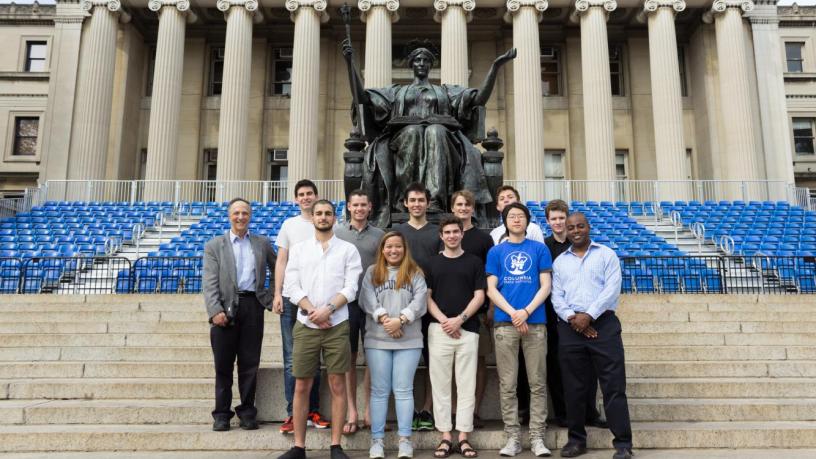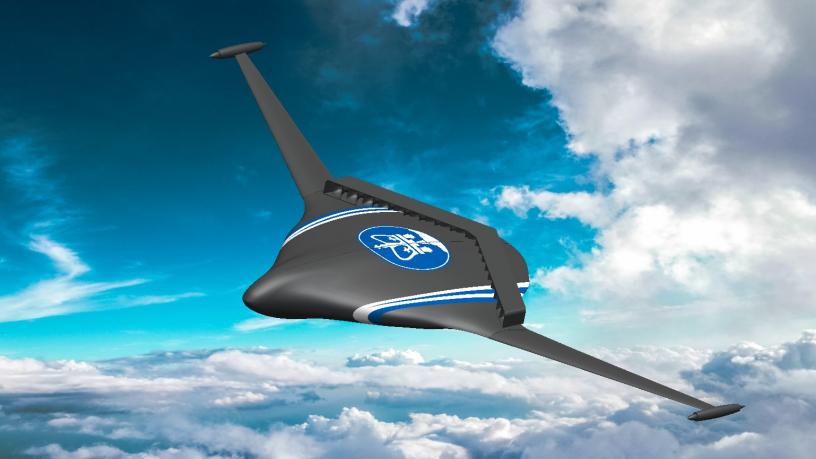Columbia Space Initiative Team Wins NASA Advanced Air Vehicles Challenge
A multidisciplinary team from the Columbia Space Initiative took first place at NASA’s Langley Advanced Air Vehicles Challenge with their design of a sleek and sustainable type of plane. Called the Gryphon, their aircraft incorporates a highly aerodynamic blended wing body crafted of lightweight materials and utilizes a novel propulsion configuration to minimize drag and significantly increase propulsive efficiency.

The Columbia team beat teams from Purdue and Georgia Tech to take home first prize in the low noise subsonic category at NASA’s Langley Advanced Air Vehicles Challenge.
Competing in the low noise subsonic category, the student-designed airplane had to meet NASA’s N+2 goals, including noise reduction, lower emissions, and reduced fuel consumption. The Columbia Team—mission leaders Elon Gordon ’18 and Leon Kim ’19 along with Aaron Appelle ’18, Jacob Austin ’20, Nick Barclay ’18, Nhu Doan ’20, Giorgi Mtchedlishvili ’18, Andrew Moshova ’19, Arturo Mori ’19, Jose Rueda ’19, and Yvette Schutt ’18—edged out groups from Purdue and Georgia Tech for the top spot. Their advisors were Sean Bradshaw and Peter Levoci, adjunct associate professor and adjunct professor of mechanical engineering, respectively.

An artists rendering of the CSI team's winning design. Called the Gryphon, the plane sports cutting-edge technologies in its airframe, aerodynamics, and propulsion systems.
“The Gryphon incorporates several cutting-edge technologies in its airframe, aerodynamics, and propulsion systems, from a blended wing body that produces more lift and reduces drag to turboelectric distributed propulsion for highly efficient thrust,” Kim said. “We hope that in the years to come we’ll be able to see planes like the Gryphon leading the way for greener flight.”
Along with other challenge winners, the team won trips to NASA’s Langley Research Center in Virginia September 26 for a daylong symposium on the future of aviation hosted by NASA personnel.
“We’re grateful that NASA could provide this incredible opportunity to contribute to the furtherance of sustainable aviation,” Gordon said.
This honor is the latest in a long list of impressive achievements for the student-run Columbia Space Initiative, including a variety of NASA challenges.
